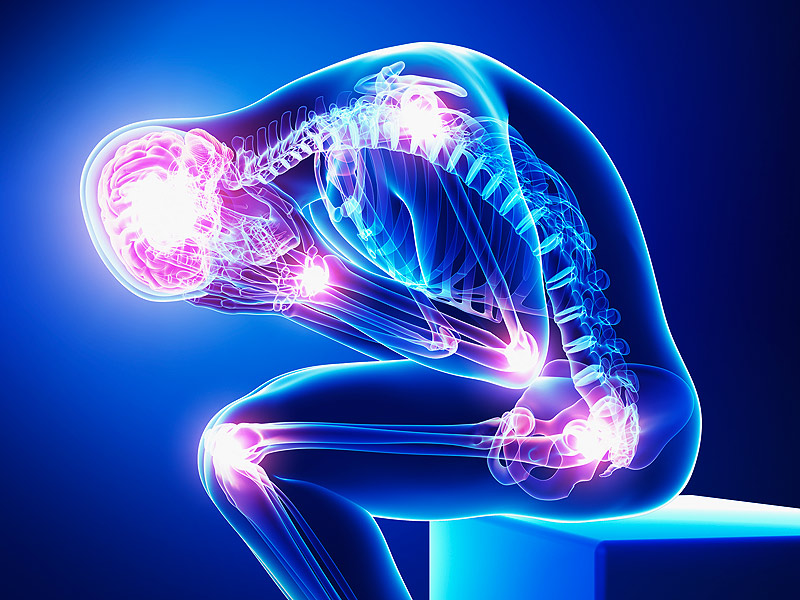
Pain is an extremely common condition that everyone will experience many times over the course of their lives. For the young and relatively healthy, we may suffer pain as a result of direct physical trauma such as from sports, physical activities or from certain acute conditions such as period cramps. For people in the older population, pain unfortunately becomes more common as our body suffers from the wear and tear of aging. It is such a common problem that many of us likely have a supply of painkillers in our homes, which probably are leftovers from our previous visits to the clinic or pharmacy. The common painkillers found in every household’s medicine cabinet would probably include paracetamol (Panadol®) and a group of medicines known as non-steroidal anti-inflammatory drugs (NSAIDs), examples include mefenamic acid (Ponstan®), diclofenac (Voltaren®), and naproxen (Synflex®), among others.
When pain hits, the temptation is to simply reach into our household stock of medicines to deal with the problem. However, many people are not aware that regular, long-term use of some of these medicines carry with them certain risks, especially when it comes to older people (>55 years of age) such as our parents and grandparents. Older people are also more likely to experience chronic pain (for example as a result of osteoarthritis) and hence are more likely to end up relying on the regular use of these medications without proper consultation with a healthcare professional. While drugs such as paracetamol are generally very safe in the normal dosages (up to 8 tablets in 24 hours for regular paracetamol and up to 6 tablets in 24 hours for extended release paracetamol), NSAIDs are not as safe to be used in certain elderly people who may also have other medical conditions.
For one, certain NSAIDs are known to increase cardiovascular risks which include heart attacks and stroke. While some NSAIDs are safer than others, they generally should be used with caution in people who have a high risk of heart attacks or stroke. For example, if you or someone you know previously had a heart attack or has uncontrolled high blood pressure, using NSAIDs regularly without consulting a healthcare professional first may not be a good idea. Similarly, NSAIDs can also cause damage to your kidneys if not used carefully. The risk of kidney damage is increased if you use NSAIDs when you are on certain medications used to treat high blood pressure such as diuretics and ACE inhibitors.
Finally, NSAIDs are also infamous for causing gastrointestinal complications such as stomach ulcers and bleeding, which is why it is often advisable to take them with food. Some types of NSAIDs known as selective COX-2 inhibitors such as celecoxib (Celebrex®) and etoricoxib (Arcoxia®) have a lower chance of causing stomach ulcers and bleeding, but still carry with them other risks especially the cardiovascular risks mentioned above.
It can be scary to read about all the potential side effects that can occur from such commonly used medicines. It should be stated that overall, NSAIDs are very useful medicines for the treatment of pain and can be very effective as well as safe if used correctly. The chances of these side effects occurring are very small in younger patients who only use these medicines occasionally. It is only when they are abused or used inappropriately that the risks of these side effects are unnecessarily increased. Unfortunately, the fact that they are extremely common and easily available means that this happens more often than it should, particularly in elderly patients who may not be aware of the risks.
So the next time chronic pain hits you or one of your loved ones, do refrain from simply using what leftover medicines are available in the house without proper advice. Consult your pharmacist or doctor to get more information about which medicines or other treatment options available that would be most appropriate for your condition.

Image credit
- https://media.healthplus.vn/thumb_x650x382/Images/Uploaded/Share/2016/10/19/mat-trai-chet-nguoi-cua-loai-thuoc-giam-dau-nha-nao-cung-dung11476847905.jpg
- https://img.medscape.com/news/2015/dt_150319_chronic_pain_headache_migraine_800x600.jpg
- https://www.mcknights.com/wp-content/uploads/sites/5/2019/01/LTCN_page37_0219_Feature02.jpg
References
- Trelle S et al. Cardiovascular safety of non-steroidal anti-inflammatory drugs: network meta- analysis. BMJ 2011;342:c7086.
- Nissen SE et al. Cardiovascular Safety of Celecoxib, Naproxen, or Ibuprofen for Arthritis. The New England Journal of Medicine. 2016. 375(26):2519-2529.
- Castellsague J et al. Individual NSAIDs and Upper Gastrointestinal Complications: A Systematic Review and Meta-Analysis of Observational Studies (the SOS Project). Drug Saf. 2012 Dec1;35(12):1127-46
In collaboration with Dosing Health.








